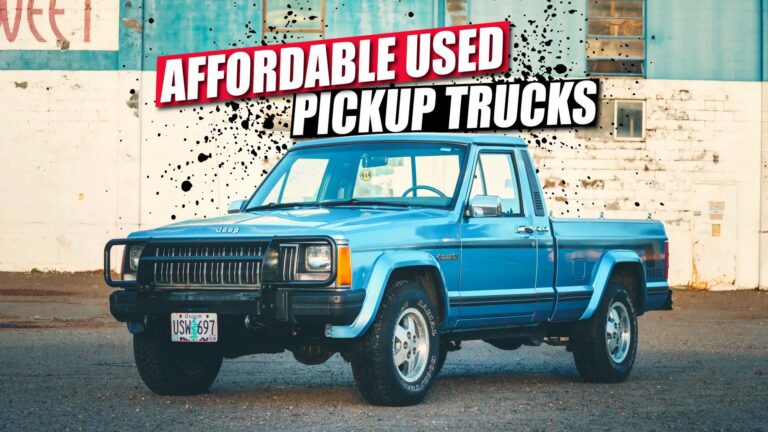Commercial Day Cab Trucks for Sale: Your Comprehensive Guide to Finding the Perfect Workhorse

Commercial Day Cab Trucks for Sale: Your Comprehensive Guide to Finding the Perfect Workhorse
In the bustling world of commercial transportation, efficiency, reliability, and suitability are paramount. For businesses operating local, regional, or specialized routes, the commercial day cab truck stands out as an indispensable workhorse. Unlike their long-haul sleeper counterparts, day cabs are designed for tasks that don’t require overnight stays, offering a unique blend of maneuverability, cost-effectiveness, and robust performance.
This comprehensive guide delves into everything you need to know about commercial day cab trucks for sale, from understanding their core benefits to navigating the purchasing process, ensuring you make an informed decision that drives your business forward.
What is a Commercial Day Cab Truck?
A day cab truck, often simply called a "day cab," is a type of commercial truck (typically a Class 8 heavy-duty truck) characterized by its compact cabin design that does not include a sleeper berth. This means the cab is optimized for a single shift, with seating for the driver and sometimes a co-driver, but no facilities for resting or sleeping.
Day cabs are primarily used for:
- Local and Regional Deliveries: Transporting goods within a specific metropolitan area or short inter-city routes.
- Specialized Applications: Serving as the power unit for dump trucks, concrete mixers, refuse trucks, tow trucks, heavy haulers, and various vocational vehicles.
- Port Drayage: Moving shipping containers to and from ports.
- Construction: Hauling materials like sand, gravel, and equipment to job sites.
- Fleet Operations: Ideal for companies with multiple drivers or those that return to a central depot at the end of each shift.
Their design emphasizes functionality over extended living quarters, making them distinct from the larger, more luxurious sleeper trucks commonly seen on cross-country hauls.
Why Choose a Day Cab? Benefits & Applications
Opting for a day cab truck offers a multitude of advantages, making them the preferred choice for a significant segment of the trucking industry:
-
Cost-Effectiveness:
- Lower Purchase Price: Day cabs generally cost less than comparable sleeper models due to the absence of the sleeper compartment and associated amenities.
- Reduced Operating Costs: They are often lighter, potentially leading to better fuel economy, and have fewer complex systems to maintain. Insurance costs can also be lower.
- Lower Maintenance: Fewer amenities mean fewer things to break down, simplifying maintenance.
-
Superior Maneuverability: Without the extended sleeper, day cabs have a shorter wheelbase. This translates to a tighter turning radius, making them easier to navigate in congested urban environments, construction sites, and tight loading docks.
-
Increased Payload Capacity: The lighter tare weight of a day cab means more of the Gross Vehicle Weight Rating (GVWR) or Gross Combination Weight Rating (GCWR) can be allocated to the payload, allowing businesses to haul more per trip.
-
Versatility in Application: Their adaptable chassis allows them to be upfitted for a vast array of vocational uses beyond simple freight hauling, including:
- Dump Trucks & Transfer Trucks
- Concrete Mixers (Cement Trucks)
- Refuse & Recycling Trucks
- Roll-off Trucks
- Vacuum Trucks
- Crane Trucks
- Heavy Equipment Haulers
-
Driver Comfort for Daily Operations: While lacking a sleeper, modern day cabs are designed with driver ergonomics in mind, featuring comfortable seating, intuitive controls, excellent visibility, and advanced infotainment systems to ensure a productive and comfortable workday.
Key Factors When Buying a Day Cab
Purchasing a day cab requires careful consideration of several technical and operational aspects to ensure it aligns perfectly with your business needs:
-
Engine & Powertrain:
- Horsepower & Torque: Match the engine’s power output to your typical load weight and terrain. Higher horsepower and torque are needed for heavy hauling or mountainous regions.
- Transmission: Manual transmissions offer more control and fuel efficiency for experienced drivers, while automatic (or automated manual) transmissions reduce driver fatigue and are easier for new drivers.
- Fuel Efficiency: Research engine models known for their efficiency, considering your expected annual mileage.
-
GVWR/GCWR (Gross Vehicle/Combination Weight Rating): This is crucial. Ensure the truck’s ratings meet or exceed the maximum weight you plan to haul, including the truck itself, its cargo, and any towed trailer. Overloading leads to safety hazards, fines, and premature wear.
-
Axle Configuration:
- 4×2: Single drive axle, common for lighter loads or flat terrain.
- 6×2: Tandem axle with one powered axle and one unpowered "lift" axle, offering some flexibility.
- 6×4: Tandem drive axles, providing maximum traction for heavy loads, off-road conditions, or challenging terrain.
-
Brakes: Most heavy-duty day cabs use air brakes, which are powerful and reliable. Ensure the system is well-maintained, and confirm the presence of ABS (Anti-lock Braking System) for safety.
-
Cab Features & Ergonomics: Consider driver comfort, visibility, ease of access to controls, air conditioning, heating, and any desired technology (GPS, telematics compatibility, Bluetooth). A comfortable driver is a productive driver.
-
Maintenance History (for Used Trucks): Demand comprehensive service records. Look for evidence of regular oil changes, transmission fluid flushes, brake inspections, and major repairs. A pre-purchase inspection by an independent mechanic is highly recommended.
-
Emissions Compliance: Be aware of current EPA emissions standards (e.g., DPF, DEF systems). Ensure the truck meets the requirements for your operating region to avoid penalties.
-
Tires: Inspect tire condition (tread depth, even wear) and type. Proper tires are essential for safety, fuel efficiency, and traction.
New vs. Used Day Cabs: Pros and Cons
The decision between a new and used day cab often boils down to budget, immediate needs, and risk tolerance.
New Day Cabs:
- Pros: Full manufacturer warranty, latest technology and safety features, customizable specifications, pristine condition, higher resale value initially.
- Cons: Higher upfront cost, rapid depreciation in the first few years.
Used Day Cabs:
- Pros: Significantly lower purchase price, depreciation has already occurred (slower future depreciation), wider selection of makes and models, faster acquisition.
- Cons: No manufacturer warranty (or limited), potential for hidden mechanical issues, may lack the latest tech, higher maintenance costs if not well-maintained.
Tips for Buying Used:
- Pre-Purchase Inspection (PPI): Non-negotiable. Hire a qualified heavy-duty mechanic to thoroughly inspect the truck.
- VIN Check: Run a Vehicle Identification Number (VIN) check to review accident history, odometer discrepancies, and previous ownership.
- Reputable Seller: Purchase from established dealerships or well-regarded private sellers.
Where to Find Commercial Day Cab Trucks for Sale
The market for day cabs is robust, with several avenues to explore:
- Commercial Truck Dealerships: Both new and used dealerships offer a wide selection, often with financing options, maintenance services, and warranty programs.
- Online Marketplaces: Websites like TruckPaper.com, CommercialTruckTrader.com, MyLittleSalesman.com, and RitchieSpecs.com aggregate listings from dealers and private sellers nationwide.
- Auctions: Public and online auctions (e.g., Ritchie Bros., IronPlanet, Taylor & Martin) can offer competitive pricing, but buyer beware – "as-is, where-is" sales require expert inspection.
- Fleet Liquidations: Larger companies periodically sell off older trucks from their fleets, often well-maintained.
- Private Sellers: Check local classifieds or online forums, but exercise caution and always conduct thorough due diligence.
Financing Your Day Cab Purchase
Securing financing is a critical step for most businesses. Options include:
- Traditional Bank Loans: Often offer competitive rates if you have strong credit and business history.
- Dealership Financing: Convenient, as dealers often partner with various lenders.
- Specialized Commercial Truck Lenders: Companies like Daimler Truck Financial or PACCAR Financial understand the unique needs of the trucking industry.
- Leasing Options:
- TRAC Lease (Terminal Rental Adjustment Clause): You bear the residual value risk but often have lower monthly payments and purchase options.
- FMV Lease (Fair Market Value): The lessor bears the residual risk, and you can return the truck at the end of the term or purchase it at fair market value.
- Considerations: Down payment requirements, interest rates, loan terms (e.g., 36, 48, 60 months), your credit score, and business financial history will all impact your financing options.
Tips for a Successful Day Cab Purchase
- Define Your Needs Clearly: What will you be hauling? What are the typical weights? What terrain will you operate on? How many miles per year?
- Set a Realistic Budget: Include not just the purchase price, but also taxes, registration, insurance, initial maintenance, and potential upfitting costs.
- Research Thoroughly: Compare different makes (Freightliner, Peterbilt, Kenworth, Volvo, International, Mack), models, engine types, and features. Read reviews and seek expert opinions.
- Inspect, Inspect, Inspect: Whether new or used, a meticulous inspection is vital. For used trucks, a professional PPI is non-negotiable.
- Test Drive: Take the truck for an extended test drive under conditions similar to your typical operations. Pay attention to handling, braking, acceleration, and cab noise.
- Negotiate: Don’t be afraid to negotiate the price. Research market values beforehand.
- Understand Total Cost of Ownership (TCO): Beyond the purchase price, consider fuel, maintenance, tires, insurance, and depreciation over the truck’s lifespan.
- Check for Warranty Options: Even some used trucks may come with limited dealer warranties or extended service plans.
Potential Challenges & Solutions
- Finding the Right Specification: The vast array of options can be overwhelming. Solution: Start with a detailed list of your operational requirements and narrow down choices systematically. Consult with experienced truck sales representatives.
- Budget Constraints: New trucks can be expensive, and even used ones represent a significant investment. Solution: Explore financing options, consider well-maintained used trucks, or look into leasing to manage cash flow.
- Unexpected Maintenance Costs (Used Trucks): A hidden issue can quickly erode savings. Solution: A thorough pre-purchase inspection, a detailed maintenance history review, and a reputable seller are your best defenses.
- Regulatory Compliance: Emissions, weight limits, and specific industry regulations vary. Solution: Stay informed about federal, state, and local regulations relevant to your operations. A knowledgeable dealer can help ensure compliance.
Representative Price Guide for Commercial Day Cab Trucks for Sale
Please Note: The prices in this table are approximate and can vary wildly based on the truck’s specific make, model, year, mileage, condition, engine type, transmission, axle configuration, features, geographical location, and current market demand. This table is for illustrative purposes only.
| Category | Example Make/Model | Year Range | Condition | Typical Price Range (USD) | Key Considerations |
|---|---|---|---|---|---|
| New Day Cab | Freightliner Cascadia, Peterbilt 579 | 2023-2024 | New | $130,000 – $180,000+ | Full warranty, latest tech, customizable, highest upfront cost. |
| Late Model Used | Kenworth T680, Volvo VNL | 2018-2022 | Excellent | $70,000 – $120,000 | Good balance of modern features, lower miles, potentially remaining warranty. |
| Mid-Range Used | International LT625, Mack Anthem | 2014-2017 | Good | $40,000 – $75,000 | Solid workhorses, higher mileage, but well-maintained can be reliable. |
| Budget Used | Freightliner M2, Older Models | 2008-2013 | Fair/Good | $20,000 – $45,000 | Entry-level, potentially higher maintenance, ideal for lower budgets or specific projects. |
| Vocational (Used) | Peterbilt 367 (Dump), Mack GU (Mixer) | 2010-2020 | Varies | $60,000 – $150,000+ | Highly specialized, price depends heavily on attached equipment and hours. |
Frequently Asked Questions (FAQ)
Q1: What’s the average lifespan of a commercial day cab truck?
A1: With proper maintenance, a commercial day cab can last well over 1,000,000 miles or 15-20 years, though many are retired from primary service around 700,000-800,000 miles. Vocational trucks might be judged more by engine hours than mileage.
Q2: Can I use a day cab for long-haul operations?
A2: Technically, yes, but it’s not practical or comfortable. Day cabs lack the sleeping amenities for overnight trips, making them unsuitable for extended runs that require driver rest away from home. They are designed for daily returns to a home base.
Q3: What’s the difference between GVWR and GCWR?
A3: GVWR (Gross Vehicle Weight Rating) is the maximum operating weight of a single vehicle as specified by the manufacturer, including the vehicle itself, fuel, passengers, and cargo. GCWR (Gross Combination Weight Rating) is the maximum allowable weight of the fully loaded truck and its loaded trailer, including all cargo and drivers.
Q4: Are day cabs more fuel-efficient than sleeper cabs?
A4: Generally, yes. Day cabs are lighter due to the absence of a sleeper berth and often have a shorter wheelbase, which can contribute to better aerodynamics and reduced rolling resistance, leading to improved fuel economy.
Q5: What typical maintenance is required for a day cab?
A5: Regular maintenance includes oil changes, filter replacements (oil, fuel, air), tire rotation and inspection, brake checks, lubrication of chassis components, and inspection of all fluid levels. Preventative maintenance is key to extending the truck’s life.
Q6: Do day cabs ever have sleeper berths?
A6: No. By definition, a day cab is a commercial truck without a sleeper berth. If it has a sleeper, it’s categorized as a sleeper cab, designed for long-distance hauls requiring overnight stops.
Conclusion
Investing in a commercial day cab truck is a strategic decision that can significantly impact your business’s operational efficiency and profitability. These versatile workhorses are purpose-built for the demands of local and regional transportation, offering a compelling blend of maneuverability, cost-effectiveness, and robust performance.
By carefully assessing your needs, understanding the critical factors involved in the purchase, exploring both new and used options, and leveraging available financing, you can confidently navigate the market for commercial day cab trucks for sale. With the right research and a thorough approach, you’ll acquire a reliable asset that drives your business success for years to come.



